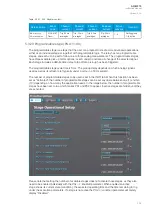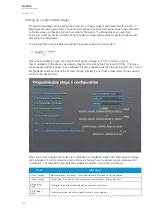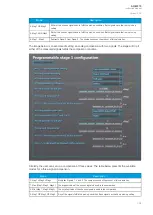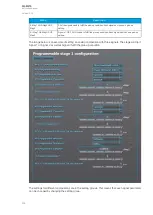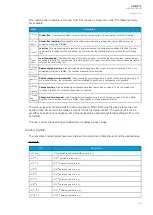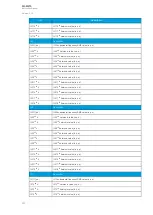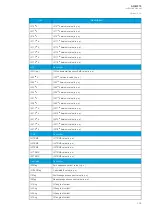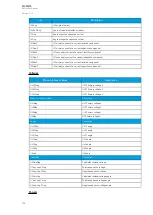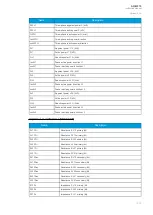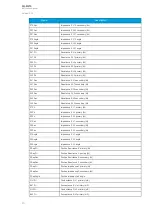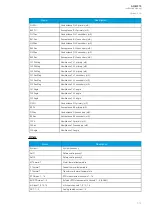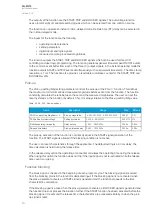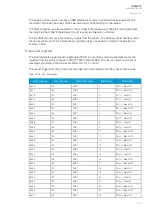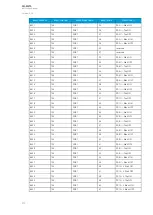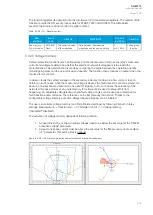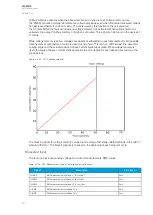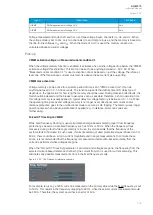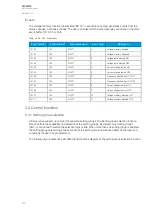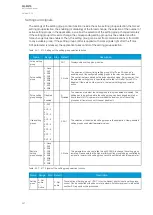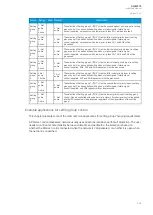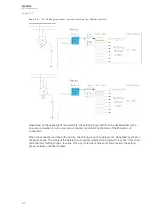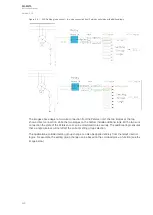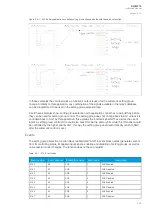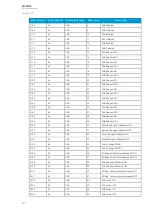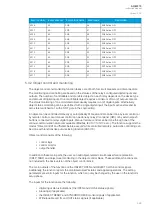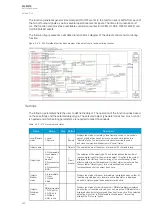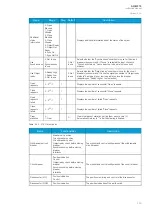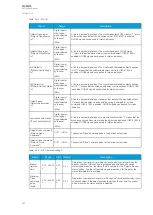
The function registers its operation into the last twelve (12) time-stamped registers. The register of the
function records the ON event process data for START, TRIP or BLOCKED. The table below
presents the structure of the function's register content.
Table. 5.3.28 - 207. Register content.
Date
and time
Event
code
>/< Mag#
Mag#/Set#
Trip time
remaining
Used SG
dd.mm.yyyy
hh:mm:ss.mss
8576-8637
Descr.
The numerical value
of the magnitude
Ratio between the measured
magnitude and the pick-up setting
0
ms...1800s
Setting group
1...8 active
5.3.29 Voltage memory
Certain protection functions (such as impedance or directional overcurrent) use the relay's measured
current and voltage to determine whether the electrical network fault appears to be inside the
protected area. The determination is made by comparing the angle between the operating quantity
(zone/tripping area) and the actual measured quantity. The function then produces an output when the
required terms are met.
In close-in faults the system voltage on the secondary side may fall down to a few volts or close to
nothing. In such cases, when the measured voltage is absent, the fault direction cannot be solved. As
backup, non-directional protection can be used for tripping, but in such cases the selectivity of the
network will reduce. However, an angle memory for voltage can be used to prevent this from
happening. An adjustable voltage level with pre-fault voltage angles can be used as a reference for
fault direction and/or distance. The reference can be set manually for duration. Thanks to the
configurable voltage memory even time-delayed backup tripping can be initiated.
The user can activate voltage memory (and find all related settings) by following this path in relay
settings:
Measurement
→
Transformers
→
VT Module (3U/4U) 1
→
Voltage memory
("Activated"/"Disabled").
The activation of voltage memory depends of following criteria:
1. All used line-to-line or line-to-neutral voltages need to be below the set value for the "VMEM
activation voltage" parameter.
2. At least one phase current must be above the set value for the "Measured current condition
3I>" parameter. This setting limit is optional.
Figure. 5.3.29 - 196. Distance protection characteristics and directional overcurrent.
A
AQ
Q-M215
-M215
Instruction manual
Version: 2.04
316

